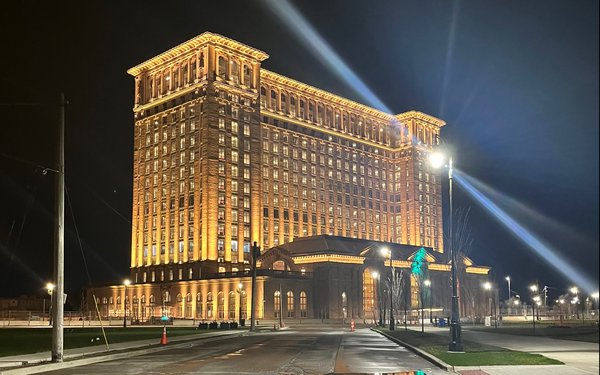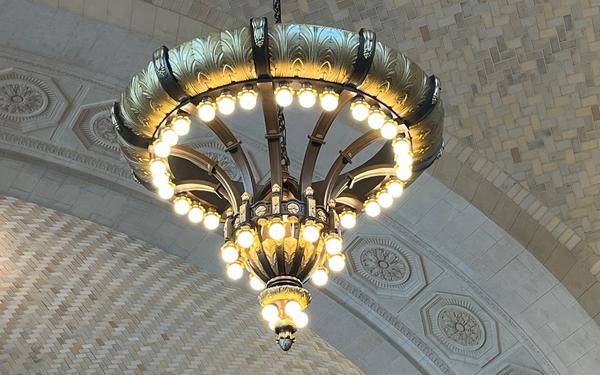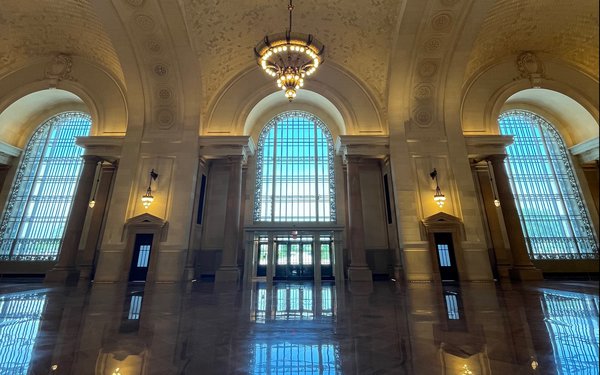
After a six-year, $950 million restoration by
Ford Motor Co., one of Detroit’s crown jewels will reopen to the public.
So many people want to take the free tours of Michigan Central Station that the website set up to take
reservations crashed. That’s a good problem to have because it shows how near and dear this building is to the people of this region.
I was fortunate to attend a media
preview several weeks ago. I knew it was going to be magnificent and I was likely to have an emotional reaction, but nothing prepared me for the absolute splendor of the building, both inside and
out.
Seeing it in its derelict condition since its 1988 closure was painful. Watching the progress the workers made in its resurrection the last several years filled me with
great hope for both the city and the auto industry.
advertisement
advertisement
The 30-acre technology and cultural hub officially welcomes the community back to share in its historic reopening during an
open house from June 6-16. Festivities kick off Thursday with a huge concert produced by Eminem, featuring a long list of Detroit musicians including Diana Ross, Jack White and Big
Sean.
Ford innovation teams will be among the first occupants, and the building will include a dedicated floor for youth programming.
The automaker
embarked on the preservation project after acquiring the abandoned train station in 2018 to be the centerpiece of Michigan Central in Detroit’s Corktown neighborhood.
Michigan Central will bring Ford employees together with external partners, entrepreneurs, students, and even competitors, to co-create new products, services, and technologies that add
value to a new generation of Ford customers and help build a better world, according to the automaker.
While Ford’s investment is crucial to the company’s
long-term planning, it also represents a commitment to the city of Detroit and its future, with the station becoming a beacon of development and opportunity.
“Michigan Central
means a great deal to us all. In many ways, this building tells the story of our city,” said Bill Ford, executive chair of Ford, in a release. “This Station was our Ellis Island – a
place where dreamers in search of new jobs and new opportunities first set foot in Detroit. But once the last train pulled out, it became a place where hope left.”
In 2018,
Ford decided it was time to change that by reimagining this station as a place of possibility again, he says.
Teams of forward thinkers, designers, community leaders, and more than
3,000 skilled tradespeople have logged more than 1.7 million hours meticulously bringing the landmark back to life.
“I wanted Michigan Central to be beautifully restored
but also reimagined for so much more,” Ford says. “This will be a place for the community to enjoy and a destination for visitors from all over. We will have restaurants, music, art, and
great retail. And the innovation that will happen here, with startups and companies big and small, will help ensure Detroit preserves its title as the Motor City for generations to
come.”

